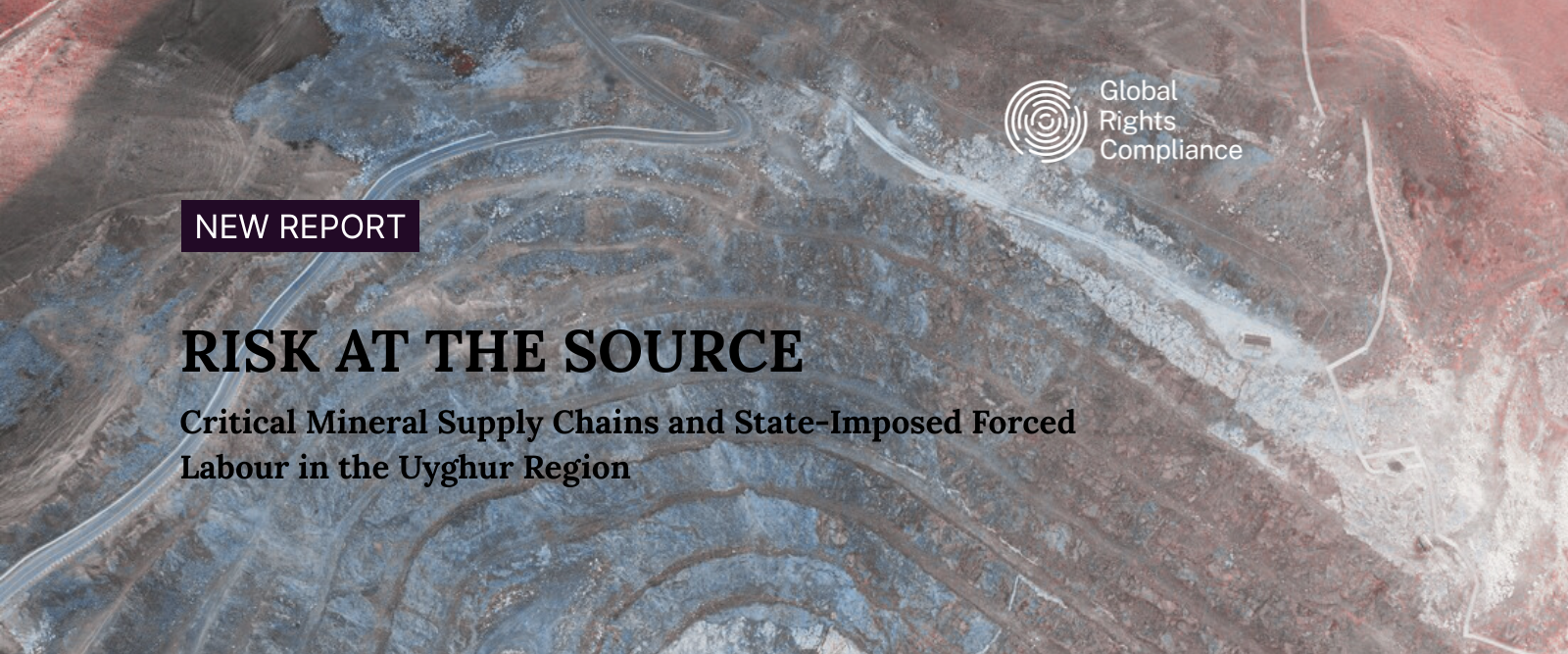Turkistan Times, June 12 2025: A newly released report by Global Rights Compliance titled “Risk at the Source: Critical Mineral Supply Chains and State-Imposed Forced Labour in the Uyghur Region” highlights the increasing global dependence on critical minerals extracted in East Turkistan (officially: Xinjiang Uyghur Autonomous Region), where Uyghur and other Turkic communities face systemic forced labour under state-directed programs.
The report outlines how China has significantly expanded its mining and processing of minerals such as titanium, lithium, beryllium, and magnesium in East Turkistan over the past decade. These operations are closely linked to labour transfer programs which, according to legal experts, amount to forced labour—particularly targeting Uyghurs and other ethnic minorities.
Uyghur Communities at the Center of Industrial Expansion
Under the pretext of poverty alleviation and job training, these programs have relocated large numbers of Uyghurs from their homes to work in mining and industrial facilities. The report emphasizes that such transfers occur in a broader context of repression, including family separation, religious restrictions, land dispossession, and mass surveillance.
East Turkistan's growing role in mineral supply chains, especially in energy and defense sectors, is not only a commercial issue but also a human rights concern for the Uyghur people, who have long warned of economic exploitation accompanying political and cultural repression.
Key Findings:
-
11.6% of global titanium sponge production comes from East Turkistan.
-
Lithium extraction and downstream battery production are expanding rapidly in the region.
-
The region supplies over 50% of China’s beryllium.
-
China produces 92% of global raw magnesium, with the XUAR among the top five producing areas.
-
77 companies involved in mining or manufacturing operate in the region and are at risk of using forced labour.
-
15 companies have sourced materials directly from East Turkistan in the past two years.
-
68 downstream customers are linked to suppliers with operations in the region.
-
18 parent companies may be sourcing materials from regional subsidiaries.
Environmental & Trade Implications
In addition to the human cost, the report points to coal-reliant energy sources, lack of environmental oversight, and opaque distribution networks in the region. These factors allow goods produced through forced labour to enter global markets at reduced costs, putting ethical businesses at a disadvantage.
Corporate Accountability
All companies mentioned in the report were contacted and given the opportunity to respond. Their replies are included in the report’s Corporate Response Annex.
Download the full report here.

